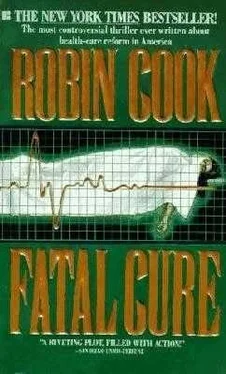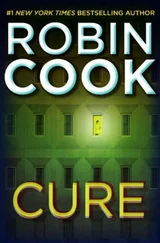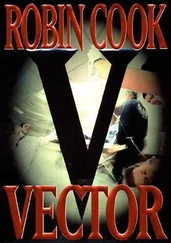"It has been brought to my attention that you did an autopsy here in the lab," Wadley said angrily.
"It's true," Angela admitted. "But I did it on my own time."
"You might have done it on your own time, but it was done in my lab," Wadley said.
"It's true I used hospital facilities," Angela said. She didn't agree that it was Wadley's lab. It was a hospital facility. He was an employee just as she was.
"You were specifically told no autopsies," Wadley said.
"I was specifically told they were not paid for by CMV," Angela said.
Wadley's cold eyes bore into Angela. "Then allow me to clear up a misunderstanding," he said. "No autopsies are to be done in this department unless I approve them. I run the department, not you. Furthermore, I've ordered the techs not to process the slides, the cultures, or the toxicological samples."
With that, Wadley returned to his office and closed the connecting door with a slam.
As usual, after one of their increasingly frequent confrontations, Angela was upset. As soon as she had composed herself, she retrieved the tissue specimens, the cultures, and the toxicological samples she had taken from Mary Ann. She then carefully packed the cultures and the toxicological material and sent them to the department where she'd trained in Boston. She had enough friends there to get them processed. The tissue samples she kept, planning on doing the slides herself.
David made the rounds of his patients, purposefully leaving Jonathan for last. When he walked into his room he was shocked. The bed was empty.
Assuming he'd been transferred to another room for some ridiculous reason as John Tarlow had been, David went to the nurses' station to ask where he could find Jonathan. Janet Colburn told him that Mr. Eakins had been transferred to the ICU by the ER physician during the night.
David was dumbfounded.
"Mr. Eakins developed difficulty breathing and lapsed into a coma," Janet added.
"Why wasn't I called?" David demanded.
"We had a specific order not to call you," Janet said.
"Issued by whom?" David asked.
"By Michael Caldwell," Janet said. "The medical director of the hospital."
"That's absurd…" David shouted. "Why…"
"We were told that if you had any questions you should call Ms. Beaton," Janet said. "Don't blame us."
David was beside himself with fury. The medical director did not have the right to leave such an order. David had never heard of anything more absurd. It was bad enough that these administrators were second-guessing him. But to intercede in patient care so directly seemed a total violation.
But David understood his argument wasn't with the nurse. He left immediately to find his patient. He arrived to discover that Jonathan's condition was indeed critical. He was in a coma and on a respirator just as Mary Ann had so recently been. David listened to his chest. Jonathan was also developing pneumonia. Twisting the IV bottle around, David saw that he was getting continuous intravenous antibiotics.
David went to the central desk to study Jonathan's chart. He quickly realized that Jonathan's course had begun to mirror David's three deceased patients. Jonathan had developed problems of the GI system, the central nervous system, and the blood system.
David picked up the phone to call Helen Beaton when the ICU unit coordinator tapped him on the shoulder and handed him another phone. It was Charles Kelley.
"The nurses told me you'd come into the ICU," Kelley said. "I'd asked them to call me the moment you appeared. I wanted to inform you that the Eakins case has been transferred to another CMV physician."
"You can't do that," David said angrily.
"Hold on, Dr. Wilson," Kelley said. "CMV certainly can transfer a patient, and I have done so. I've also notified the family, and they are in full agreement."
"Why?" David demanded. Hearing that the family was also behind the change, his voice lost most of its sting.
"We feel that you are too emotionally involved," Kelley said. "We decided it was better for everyone if you were taken off. It will give you a chance to calm down. I know you've been under a lot of strain."
David didn't know what to think, much less say. He thought about pointing out that Jonathan's condition had gone downhill just as he'd feared, but he decided against it. Kelley wasn't likely to consider anything he had to say.
"Don't forget what we said yesterday," Kelley continued. "I know you'll understand our point of view if you give it some thought."
David was of two minds when he hung up. On the one hand he was still furious to have been unilaterally removed from the case. On the other, there was an element of truth in what Kelley had said. David had only to look at his trembling hands to recognize he was overly emotionally involved.
David stumbled out of the ICU. He didn't even look at Jonathan as he passed by. Out in the hall he checked his watch. It was still too early to go to his office. Instead, he went to medical records.
David pulled the charts on Marjorie, John, and Mary Ann. Sitting in the isolation of a dictation booth, he reviewed each chart, going over the respective hospital courses. He read all his entries, all the nurses' notes, and looked at all the laboratory values and the results of diagnostic tests.
David was still toying with the idea that an unknown infection was responsible, something that his patients may have contracted while in the hospital. Such an infection was called a nosocomial infection. David had read about such incidents at other hospitals. All his patients had had pneumonia but each case had been caused by a different strain of bacteria. The pneumonia had to have been the result of some underlying infection.
The only common element in all three cases was the history. Each patient had been treated for cancer with varying mixtures of surgery, chemotherapy, and radiotherapy. Of the three treatment modalities, only chemotherapy was common to all three patients.
David was well aware that one of the side effects of chemotherapy was a general lowering of a patient's resistance because of a depressed immune system. He wondered if that fact could have had something to do with the rapid downhill courses these patients experienced. Yet the oncologist, the expert in such matters, had given this common factor little import since in all three cases the chemotherapy had been completed long before the hospitalization. The immune systems of all three patients had long since returned to normal.
The pager on David's belt interrupted his thoughts. Looking at the LCD screen he recognized the number: it was the emergency room. Replacing the charts, David hurried downstairs.
The patient was Donald Anderson, another one of David's frequent visitors. Donald's diabetes was particularly hard to regulate. It was the main source of his frequent medical complaints. This visit was no exception. When David entered the examining stall he could immediately tell that Donald's blood sugar was out of control. Donald was semi-comatose.
David ordered a stat blood sugar and started an IV. While he was waiting for the lab result, he spoke with Shirley Anderson, Donald's wife.
"He's been having trouble for a week," Shirley complained. "But you know how stubborn he is. He refused to come to see you."
"I think we'll have to admit him," David said. "It will take a few days to get him on a new regimen."
"I was hoping you would," Shirley said. "It's difficult when he gets like this with the kids and all."
When David got the results of the blood sugar he was surprised that Donald hadn't been even more obtunded than he was. As David walked back to talk with Donald, who was now lucid thanks to the IV, David did a double-take. Looking into one of the other examining stalls he saw a familiar face: it was Caroline Helmsford, Nikki's friend. Dr. Pilsner was at her side.
Читать дальше












